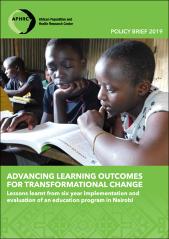| dc.description.abstract | Education is often seen as the key to developing an
economically successful society (Deng & Gopinathan, 2016).
Evidence suggests that there is a growing recognition of the
need for education systems to prepare children and young
people for life in an increasingly complex and technical world
(Priestley, Wilson, Priestley, & Serpa, 2017). This includes
inculcating in them 21st Century competencies, thereby
changing the definition of academic success from mastery
of specific content to elevation of core competencies such
as self-confidence, self-directed learning, active contribution
and ability to show concern (The Ontario Public Service,
2016). Interpersonal and intrapersonal competencies which
have gained as much importance as cognitive competencies
are critical for all students as they impact several areas of life
including educational attainment, relationships, health and
overall wellbeing. | en_US |

